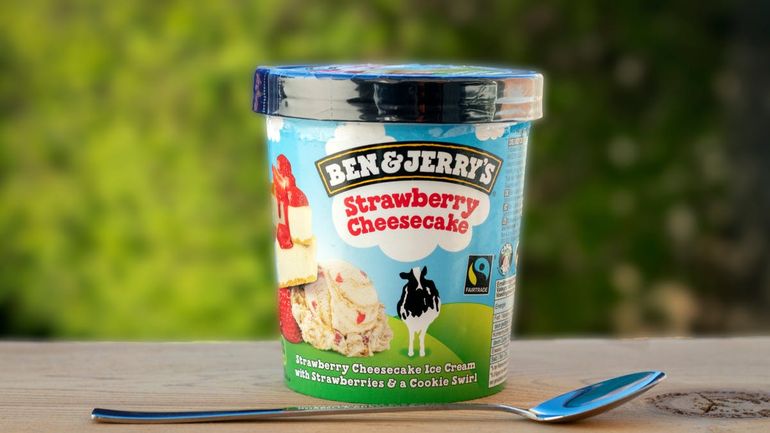
Unilever's Strategic Move: Streamlining Focus by Spinning Off Ice Cream Division

Unilever's decision to separate its ice cream business, potentially through demerger or sale, highlights the importance of optimizing the performance of key brands like Ben & Jerry’s and Magnum for future growth and efficiency.
Source: Shutterstock
Unilever has announced its intention to separate its ice cream business, where popular brands like Ben & Jerry's, Wall's, and Magnum are housed, as part of its cost-saving plan over the next three years.
This move will result in the company having four main business divisions focusing on beauty and wellbeing, personal care, home care, and nutrition, which Unilever believes will be more closely aligned in terms of operations.
Unilever believes that focusing on a portfolio of superior brands in attractive categories with complementary operating models is key. According to Unilever, ice cream, for example, has a very different operating model.
Ice cream requires a specific supply chain and points of sale that cater to frozen goods. This category is also seasonal, with the majority of sales occurring during warmer weather. On the other hand, Unilever's other business sectors do not face these challenges and have different routes to market, research and development processes, manufacturing, and distribution networks.
Unilever's plan to separate its ice cream division is part of the Group Action Plan (GAP) announced in October. The GAP aims to focus on doing fewer things but doing them better to have a greater impact. This strategy is intended to drive stronger and more consistent growth for Unilever as a whole.
In recent years, Unilever has faced criticism for prioritizing purpose over profit. CEO Hein Schumacher, who took the helm in July, acknowledged that the company's overall performance needs to improve. He shared more about the growth strategy, expressing disappointment in the company's competitiveness. Only 37% of Unilever's business managed to gain market share last year.
Valuable brands
The ice cream business may be separated in a demerger, where it would become a new company listed on its own. Existing shareholders would then get shares in this new entity. Unilever also has the option to sell the business, which is still on the table. It is important to ensure the brands remain strong and healthy.
Unilever reported that its division, which includes five of the top 10 best-selling ice cream brands worldwide, generated a total turnover of €7.9bn (£6.7bn) in 2023.
Statista data from late 2023 reveals that Unilever’s ice cream brands hold a significant market share in the UK. Ben & Jerry’s leads in tub sales, while Magnum is the preferred choice for bar or stick servings.
According to YouGov’s BrandIndex, the Ben & Jerry’s and Wall’s brands are doing well in the UK. However, since they are the only ice cream brands on the list, we cannot compare them to others in the same category. Wall’s has an index score of 14.5, while Ben & Jerry’s has a score of 24.3.
The proposed demerger is a significant moment for marketing at Unilever. Aline Santos, who has been with the company for 35 years as the chief brand officer and chief equity, diversity, and inclusion officer, will be leaving at the end of this month.
The business has also said it will stop “force-fitting” purpose into its brands.
The separation of the ice cream business will result in the loss of 7,500 jobs globally.
The process to separate it from the main bulk of Unilever is to begin immediately. It is expected to be completed by the end of 2025.
Editor's P/S:
The separation of Unilever's ice cream business is a strategic move to streamline operations and focus on core business areas. The company's aim to align its divisions based on similar operating models and market dynamics is a logical step towards enhancing efficiency and driving growth. The ice cream category, with its unique supply chain and seasonal sales patterns, requires a different approach compared to Unilever's other divisions.
The decision to explore options for the ice cream business, whether through a demerger or sale, highlights Unilever's commitment to maximizing shareholder value. The company's recognition of the need to improve overall performance and competitiveness is crucial for its long-term success. The departure of the chief brand officer and the shift away from "force-fitting" purpose into brands suggest a reevaluation of marketing strategies and a focus on delivering tangible results. suggests a renewed emphasis on profitability, without sacrificing the company's values completely. This strategic decision is expected to enhance Unilever's competitiveness and deliver long-term growth for its shareholders.













